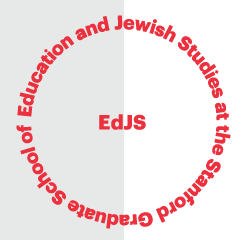 Committed to exploring high impact research questions, exploring new methods of inquiry, cultivating creative scholarship, and producing usable knowledge, EdJS provides a vibrant home for students and scholars interested in better understanding how people learn, what they learn, and what that learning ultimately means for themselves and their communities.
Committed to exploring high impact research questions, exploring new methods of inquiry, cultivating creative scholarship, and producing usable knowledge, EdJS provides a vibrant home for students and scholars interested in better understanding how people learn, what they learn, and what that learning ultimately means for themselves and their communities.
This unique interdisciplinary initiative is a home for innovative research at the intersection of Education and Jewish Studies. Studies of education focus on the diversity of ways in which people learn, from the cognitive to the cultural, and from classrooms and curricula to popular culture and social networks. Similarly, Jewish Studies investigates the varieties of Jewish experiences historically, transnationally, and in conversation with social formations like race, class, gender, sexuality, and religion. EDJS is a vibrant scholarly home for students and scholars interested in better understanding how these two fields of study overlap, interact, and mutually inform one another.
The PhD Concentration in Education and Jewish Studies is part of the Stanford Graduate School of Education and has been generously supported by a gift from the Jim Joseph Foundation.
For more information about the program, please visit edjs.stanford.edu.



